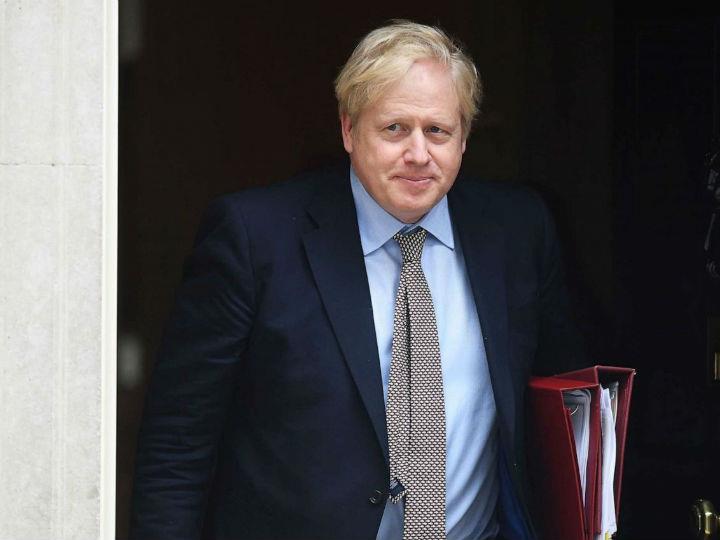by Peter Kellner*
Seldom has a sideshow bristled with such danger. The headlines and the stories have shrunk, but the risks to Britain of a ruinous Brexit have only increased. And the cause of the diminished public interest, the coronavirus pandemic, is also the reason why those risks are rising.
The United Kingdom left the European Union on January 31, 2020. The UK and the EU are now in a so-called transition phase, pending the negotiation of the long-term relationship between the two. However, the UK is allowed to ask for an extension of the transition phase to allow longer to do a deal.
This request must be made by the end of June; otherwise, the transition phase will end on December 31, come what may. If no deal has been agreed, existing international law takes over, such as the rules set by the World Trade Organisation. The sudden imposition of tariffs and other trade barriers would dent the EU’s economy but crucify Britain’s.
Before the pandemic struck, the prevailing wisdom in London was that if too little progress were made by June, UK Prime Minister Boris Johnson would have the good sense and political capital—following his bigger-than-expected election victory in December 2019—to ask for an extension, despite his repeated promises not to do so.
The pandemic has undermined this wisdom in two ways.
First, it has messed up the negotiations—both politically, by dominating the concerns of Johnson and EU leaders, and physically, by preventing face-to-face talks. These have had to be conducted via computer screens, which are as conducive to the subtleties of complex diplomacy as a dagger to a brain surgeon.
Second, the pandemic has weakened Johnson’s authority. Britain’s dismal record of deaths from COVID-19, the disease caused by the new coronavirus, has prompted accusations that ministers were too slow to recognize the danger of the pandemic—and then, having recognized it, too slow to tackle it. The UK government’s poll ratings, already in decline, fell further when Johnson’s chief adviser, Dominic Cummings, was discovered to have evaded the lockdown rules himself.
This means that Johnson no longer has the freedom to seek an extension to the transition phase, even if he wants to. Dozens of his own Conservative members of Parliament (MPs) are angry with his refusal to sack Cummings.
That anger is made more intense by the belief of these MPs that the prime minister is listening to Cummings but ignoring them when he draws up his plans to fight the pandemic. For Johnson now to ask the EU for an extension would risk turning anger into rebellion. Like it or not, he is now boxed in.
At the same time, the prospects of a wide-ranging deal by the end of 2020 have pretty well vanished. A brief review of Johnson’s game plan explains why.
Boris Johnson replaced former prime minister Theresa May because he felt she was too soft on the EU. In particular, she was willing to make a treaty commitment, via an EU withdrawal agreement that was later turned down by Parliament, to stick to EU rules on competition, labor protection, the environment, state aid, and more. She believed in these so-called level-playing-field rules; many of her MPs didn’t. Johnson opposed them and refused to include them in his own withdrawal agreement negotiated with the EU in October 2019.
Why did the EU agree to this? Because Johnson in return did agree to include similar rules in the separate political declaration that outlined what UK-EU relations after Brexit should look like. Here was a classic fudge. Unlike the withdrawal agreement, the political declaration has no legal force. Johnson could sign it because he knew he was free to interpret it as he wished.
However, the EU regarded the declaration as a solemn commitment. In the subsequent trade negotiations, it has insisted on the UK sticking to the level-playing-field rules and accepting a legal framework which could ensure that they would be enforced.
On February 17, in a speech at the Universite libre de Bruxelles, David Frost, the UK’s chief negotiator, laid bare the gulf between the UK and EU positions. He insisted on unfettered, tariff-free access to EU markets, but added: “It is central to our vision that we must have the ability to set laws that suit us . . . So to think that we might accept EU supervision on so-called level playing field issues simply fails to see the point of what we are doing. That isn’t a simple negotiating position which might move under pressure—it is the point of the whole project.”
Within days, the coronavirus crisis was consuming political leaders throughout Europe and disrupting UK-EU talks. As we have seen, this prevented the kind of delicate process familiar to diplomats the world over in which, behind closed doors, differences are whittled away and compromises made.
Instead, the drama is playing out unproductively and in public. On May 19, Frost wrote to Michel Barnier, the EU’s chief negotiator, saying he was perplexed by the EU’s “unbalanced” and “unprecedented” stance.
In response, Barnier told the Sunday Times on May 31 that “we just want to see [the level-playing-field rules] complied with . . . And if that doesn’t happen, there will be no agreement.” If the coming talks between Johnson and European Commission President Ursula von der Leyen break the logjam, it would astonish them as much as the rest of us.
Privately, Johnson’s camp claims to be relaxed if the transition phase ends without a deal. They talk of an early trade deal with the United States and argue that any economic turbulence next year would be masked by Britain’s erratic recovery from the pandemic—so voters would hardly notice.
Their optimism looks misplaced. New trade deals take years—and, in any event, the U.S. Chamber of Commerce warns that a UK-US deal may need the UK to “reset its relationship” with the EU first.
As for Britain’s post-pandemic prospects, many businesses, struggling to revive, regard trade barriers as a heavy and, for some, fatal extra burden. As the Times’s Brexit analyst, Simon Nixon, puts it, “Mr Frost’s demands for much deeper access to the EU’s single market than is normal in a free trade deal only underline what is at stake from a December cliff-edge. For many businesses [no deal] could be the final straw, leading to many more job losses and snuffing out hopes of a V-shaped recovery next year.”
Johnson could end up like a doctor trying to persuade a patient that the amputation of their right leg won’t make much difference—as they have already lost their left.
*visiting scholar at Carnegie Europe, where his research focuses on Brexit, populism, and electoral democracy
**first published in: carnegieeurope.eu




 By: N. Peter Kramer
By: N. Peter Kramer
